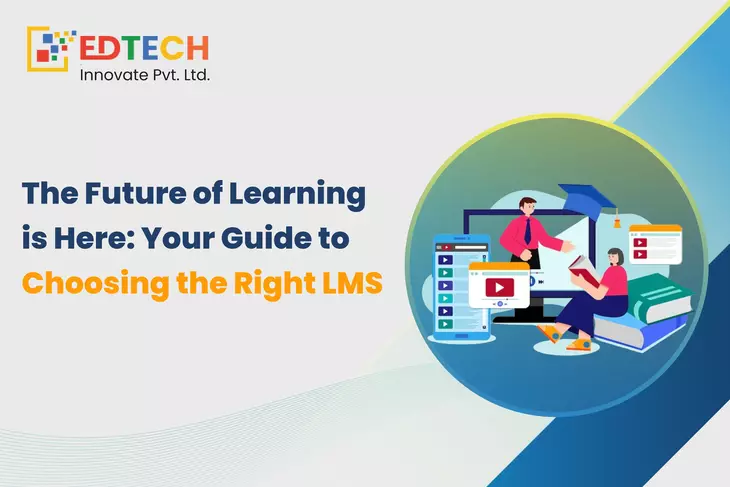Discover the best on...

We can see that there has been an ongoing change in the way education is being delivered in recent times. Now, online learning is becoming more and more famous among the aspiring learners. This is because online education offers flexibility in learning for the students. Now, it is not essential to pursue courses in traditional classroom settings, rather students now can access courses online from the comfort of their preferred locations. However, the course curriculum must be imparted to the students efficiently and effectively for online learning. For this purpose, institutions employ digital Learning management systems for schools software that provide the essential features and resources for better learning experiences. However, selecting the right LMS software is crucial for institutions as the LMS plays an important role in the effective delivery of education to students.
A Learning management systems (LMS) software is a specially designed software tool that lets students access their course resources online. The availability of various features such as Course, Assignment, Exam & Time Table Management, Personalized Learning Portals, Multilingual Interface, Social Learning Tools, Gamification, and Progress Tracking helps in making the delivery of education engaging for students in an innovative manner. Learning management systems for schools enable the digital creation, organization, delivery, and tracking of course materials that centralize training management, integrate with social media tools, and ensure data security for user data protection. This software is beneficial for students as it offers a user-friendly learning ecosystem with innovative resources like e-books and skills tracking. It is postulated that Learning management systems for schools are the tool of the future for education delivery among students.
There are different types of learning management system sotware but choosing the right Learning management systems for schools that align with the specific needs of the institution is of utmost importance. For this purpose, various factors must be considered before selecting the LMS software for your institution. These factors are described in detail below.
Read Also- Grow Your Universities through Admission Management Software
As online learning continues to reshape education, choosing the right Learning management systems for schools is paramount for institutions aiming to deliver effective and engaging learning experiences. Institutions can ensure a seamless transition to digital education by considering factors like user interface, scalability, flexibility, data security, and community support. Prioritizing innovation and adaptability in Free learning management systems for schools selection is key to keeping pace with the evolving landscape of online learning.
Various factors need to be considered while choosing a learning management system such as User Interface, Features, Scalability, Flexibility, Technical Support, Data Security, Pricing, Integration with other platforms, Community Support, Accessibility, and Innovation.
Before selecting an LMS software for your organization, it is important to understand the specific needs and requirements of your organization. After understanding your needs, you must check whether the LMS software tool is equipped with all your requirements. Also, the pricing of the LMS software acts as a crucial factor when selecting the software tool.
There are multiple key features that you must consider when evaluating different learning management system software. These are Management of content, Roles and user management, Reliable analytics and reporting, Growth and scalability, Adaptive layout Customization possibilities, Creation of assessments, Support for compliance Integration with current systems, and Features for user engagement.
© Copyright 2024 All Rights reserved by Edtech Innovate Pvt Ltd